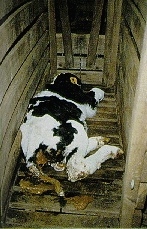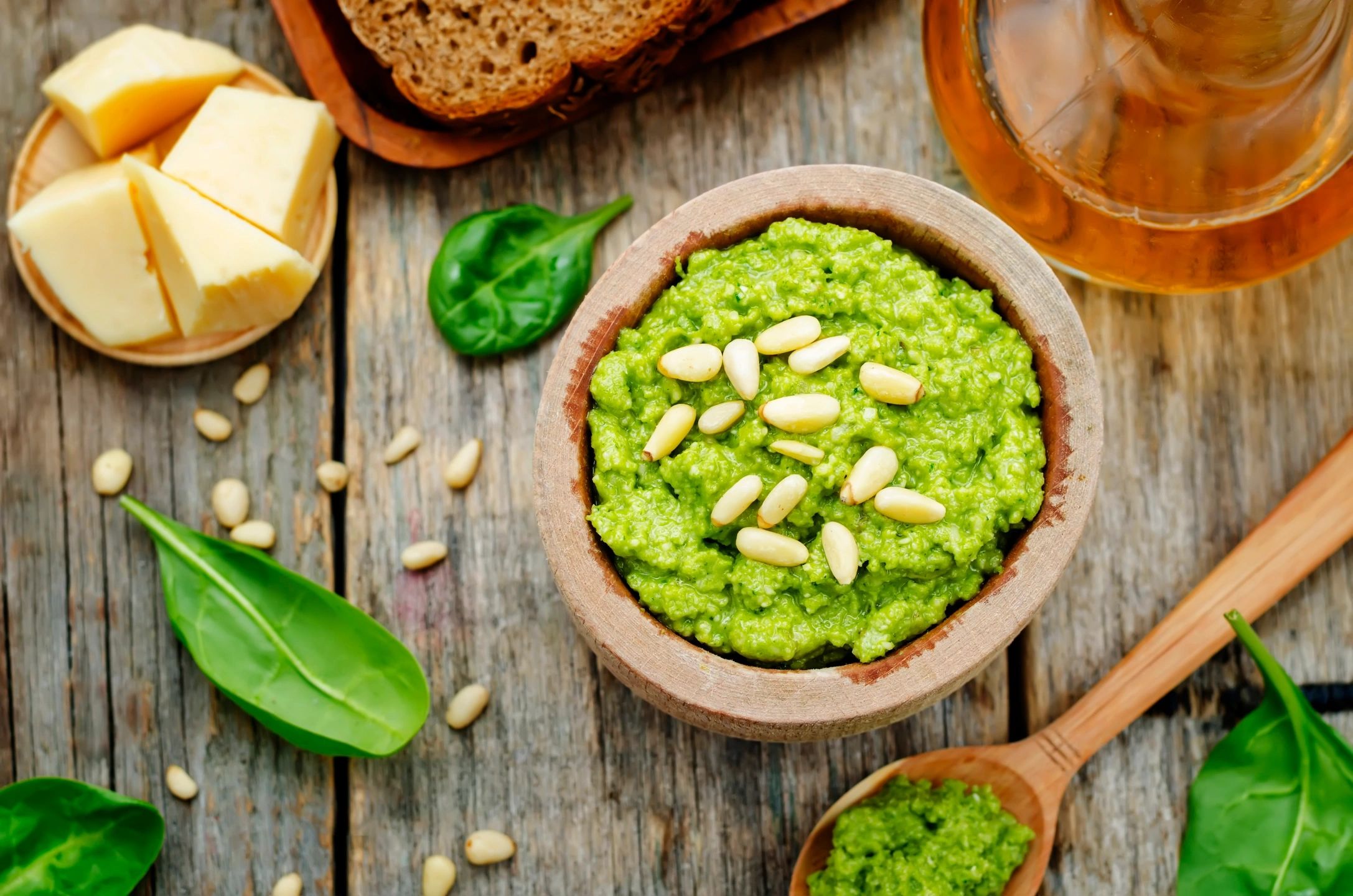Robyn Moore calls out her veggie-ish brethren with a vegan siren call;
When the subject of my vegan diet comes up, I often hear some of the same phrases: “I don’t eat that much meat” or “I don’t eat red meat, only chicken” or “I’m a vegetarian.” If that’s true, then kudos to you for doing something—anything you can do to reduce your consumption of animal products is a step in the right direction. But the animals, particularly the hens and cows used for dairy, could use even more help. If you are truly committed to ending animal suffering and don’t want to be implicated in it personally, then please—for their sake—step up.

I’ve been vegetarian for the past 20 years, but it wasn’t until just a little more than four years ago that I actually stepped up for the other, “forgotten” animals: dairy cows and egg-laying hens. I was a cheese-aholic and ate chunks of cheese like they were going out of style. I honestly didn’t see the connection between dairy and eggs and animal cruelty. I thought that eggs and milk were just byproducts obtained through nonviolent procedures—I pictured Farmer Brown milking his small herd of cows in a green pasture, sun shining overhead, and the hens all cozy in their barn just “leaving” their eggs for us to take. … But I was sorely mistaken. They are not byproducts; they are independent, multibillion-dollar industries themselves. The truth is, animals exploited for their milk and eggs are also raised in factory farms and are arguably treated much worse than the animals killed for their flesh. Egg-laying hens have their beaks seared off, and live in a space the size of a piece of paper their entire lives, unable to spread even one wing. Dairy cows are forcefully impregnated year after year to keep their milk supply flowing, and have their babies taken from them (to become veal) immediately after giving birth. In a nutshell, dairy cows and egg-laying hens live in the same miserable conditions, they’re stuffed into the same overcrowded transport trucks, and when they’re no longer useful, they’re killed in the same filthy slaughterhouses as animals killed for their flesh.

When I found out about all of this, I had no choice but to step up and make a change for those animals too, and that meant no more dairy products or eggs for me. So if you are refusing to eat meat based on ethical reasons, it’s only logical that you also extend that reasoning to include those animals abused for their milk and eggs.
Check out this short film on dairy;
And then this one on eggs;
Most vegetarians choose that diet because they love animals and don’t want to see them suffer. But when it comes to certain farm animals—dairy cows and egg-laying hens—their love wavers. Sadly, their appetite wins out over the animals’ suffering, so they end up supporting (with their dollars) industries that abuse animals in the worst ways imaginable. Remember: Just because you don’t personally confine animals in tiny cages, cut their beaks and tails off with no pain relief, hang them upside down by their legs, etc., doesn’t mean that you’re not responsible for those things happening to them. Because if you’re buying these cruel products, you are paying some else to hurt animals for you.
I don’t mean to sound harsh—and I know it’s a step that seems gigantic at first glance. But if you are vegetarian because you don’t want to be responsible for animal suffering, then common sense says that you should also give up dairy products and eggs. You will then be able to look all farm animals in the eye with a clean conscience.
Dairy cows, egg-laying hens, and others animals raised in factory farms live miserable, lonely lives, so they really need those of us who care to step up. If they can’t depend on vegetarians, then who can they depend on?
Now that you know those “other” farm animals suffer too, are you ready to make the switch to a vegan diet? If so, here are a few of my favorite dairy replacements that you can find in almost any grocery store across the country:
- Butter: Earth Balance and Smart Balance taste exactly like butter, yet they are actually healthier. You can use them in the same way: on toast, in oatmeal, when baking, etc.
- Milk: There are many great alternatives to milk, including soy milk, rice milk, almond milk, and coconut milk. You will find that most are fortified with vitamins A and D, and many actually have more calcium than cow’s milk. You can even buy soy nog for the holidays.
- Cheese: A new cheese recently came on the market that melts and can be used on pizza and in macaroni & cheese; it’s called Daiya. It has changed the playing field for vegan cheeses. But for picnics in the park when you want a baguette with cheese, the winner is, by far, Dr. Cow’s nut cheeses. I absolutely love these hard, aged cheeses, and that says a lot coming from a former cheese-aholic.
- Ice-Cream: There are tons of delicious choices for dairy-free ice-cream, including soy, rice, and coconut ice creams. Every flavor under the sun is available, including cookie dough, mint chip, chocolate peanut butter swirl, and mocha fudge. Don’t forget to try Tofutti’s nondairy ice cream sandwiches.
You can also find vegan sour cream, cream cheese, and mayonnaise in many mainstream grocery stores.
Lastly, stop by any Barnes & Noble or Borders and pick up one of the many vegan cookbooks. Or look online. You can learn how to cook vegan soups, entrées, cookies, cakes, and anything else that your heart (and belly) desires.
Good luck on your journey to helping end animal suffering. And remember: The animals are counting on YOU!
Robyn Moore is a writer, Mother, and creator of the NYC Vegetarian and Vegan Families Meetup group. It’s a place for families to gather and exchange ideas, and where veg kids can have fun without having to worry about what they can eat or participate in. It’s a group of families who are choosing to raise their kids humanely, according to the belief that animals are not here for our use, whether it be for our food, products, entertainment, or clothing.








